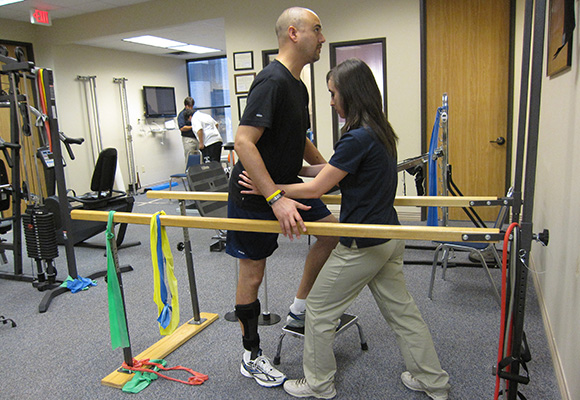
(Photo Credit: Roger Mommaerts/Flickr)
The California Community Colleges are all in to help meet the workforce needs of California employers and in giving workers access to necessary skills, as Chancellor Eloy Ortiz Oakley wrote this week in the Sacramento Bee.
In the San Diego-Imperial Region, a $3-million investment involving 10 community colleges has been certified through the Strong Workforce program to make sure that workers are trained and ready for its vibrant economy.
The result will be a regional system of job readiness to address the middle skills gap that plagues San Diego and other regional economies in California.
The priority sectors of the San Diego regional economy are well defined: advanced manufacturing, clean energy, life sciences/biotech, healthcare and information and communications technology.
“In our dynamic San Diego-Imperial economy, our many unique sectors have an immediate need for employees who are trained, think critically and have the soft, essential skills necessary to thrive in the workplace,” said Peter Callstrom, CEO of the San Diego Workforce Partnership. “Whether it's advancing manufacturing, health care or any of the other key drivers of our regional economy, a trained and versatile workforce is critical to our long-term economic prosperity.”
Shelly Atkinson works in San Diego's robust health care economy–specifically as a community health educator at Sharp Allison deRose Rehabilitation Center.
“There are many career opportunities in working with patients and people with disabilities. It is rewarding work and we need a trained and empathetic workforce,” she said. “That our region is investing in a regional system of job readiness is great news because it will help train and prepare workers for the numerous jobs in the health care field.”
In addition to the investment in creating this regional system, each community college will receive funding to continue or expand its efforts in preparing people to work in today’s economy.
For instance, at MiraCosta College offers free Career Readiness Bootcamps. They run approximately 12-24 hours scheduled over 2-3 days. These workshops are taught by industry experts and HR professionals and cover communication skills, professionalism, organizational skills, reliability, creative and critical thinking skills, and also interviewing techniques.
“Hearing regularly from our employers about the important skills that they seek in new employees, we have sought to strengthen these skills and job readiness,” said Dr. Sunita “Sunny” Cooke, president of MiraCosta College.
Workers need not only possess math, critical thinking and communications skills, but also must know how to work well on teams.
“Creating a regional system of job readiness is ambitious and will enhance our regional economy,'” said Mary Wylie, chair of the San Diego Imperial Regional Consortia. “To research and implement the system will take time but we trust it will be an investment that will benefit employers and employees in our region for years to come.”
For the California Community College Vice Chancellor for Workforce and Economic Development, this regional approach to a specific workforce need is part of why the Strong Workforce program was created.
“With rare exception, every student wants to land well in the workforce. We look forward to San Diego/Imperial’s use of the Strong Workforce Program to sponsor a regional approach to job readiness and job placement as a way to get students to that last mile,” said Van Ton-Quinlivan.
Nearly 700 programs have been certified across California as part of the Strong Workforce Program to address the middle-skills gap that employers and educators are saying holds back California’s economy.
The California Economic Summit, now in its sixth year, has identified improved workforce training as a major issue in making sure that California’s economy can continue. The Summit and its partners were major advocates in promoting the creation of the Strong Workforce program which the Legislature and Governor Brown approved—and funded for $200 million last year.
The Summit has set a goal of closing the workforce “skills gap” by supporting the formation of regional civic organizations that can align the state’s expansive training and education programs with the needs of employers.
For a look at the Strong Workforce regional and local plans for investing the $200 million in Career Technical Education, click here.
To read more about the San Diego job readiness and job placement investment, click here.
To read the California Economic Summit, 2017 Roadmap to a Shared Prosperity, click here.

